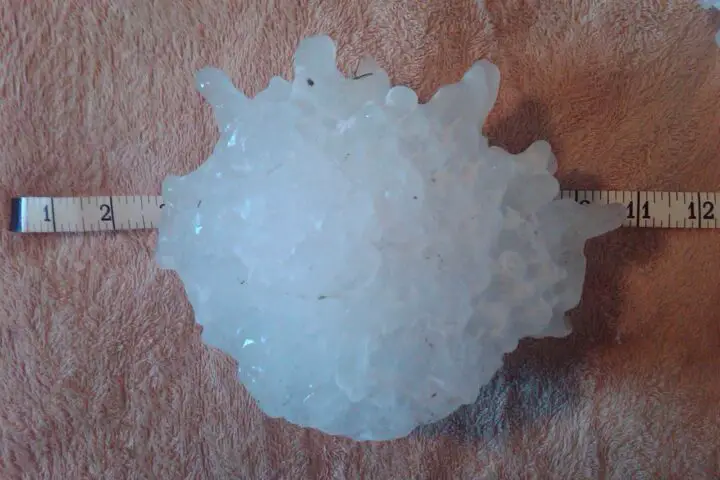America’s weather is variable: learn more about US weather extremes here. The rankings and records below are based on official NOAA and NWS data and have been reviewed for accuracy. We’ve also included links to relevant Top-10 lists from our archives for you to learn more.
For our city rankings, we consider any location with over 50,000 eligible as a “city” (with some exceptions for smaller states). However, a “place” can be any location with officially recognized meteorological records.
Coldest | Hottest | Wettest | Driest | Snowiest | Stormiest | Windiest | Sunniest | Cloudiest | FAQ
Coldest Places in the US
- Coldest temperature ever recorded: -80 °F at Prospect Creek Camp, Alaska, on January 23, 1971
- Coldest temperature ever recorded in the Lower 48: -70 °F at Rogers Pass, Montana, on January 20, 1954
- Coldest City: Fairbanks, Alaska: -16.9 °F average low temperature in January
- Coldest City in the Lower 48: Grand Forks, North Dakota: -3.1 °F average low temperature in January
- Coldest State: Alaska
More: Coldest US Cities | Coldest US States (Coming soon!)
Hottest Places in the US
- Warmest temperature ever recorded: 134 °F at Death Valley, California, on July 10, 1913
- Days over 100 °F: Death Valley, California: 147 days annually
- Warmest City: Key West, Florida: 78.1 °F average annual temperature
- Warmest State: Florida
More: Warmest US Cities | Warmest US States
Wettest Places in the US
- Most Days with Precipitation: Akaka Falls Park, Big Island, Hawaii: 309 days
- Most Rain in 24 Hours: Waipā Garden, Kauai, Hawaii: 49.69″ on April 15, 2018 (1245pm 4/14 to 1245pm 4/15 HST)
- Most Annual Rainfall: Miami, Florida and Mobile, Alabama: 67″
- Wettest Place: Little Port Walter, Baranof Island, Alaska: 245.7″ annually*
- Wettest City: Rochester, New York: 167 days with .01″ or more of precipitation
- Wettest State: Hawaii
More: Wettest US Cities | Wettest US States
More Top Ten Lists
Driest Places in the US
- Longest period without measurable rainfall: Sacramento, California: 211 days, March 20 to October 16, 2021
- Driest City: Yuma, Arizona: 3.3″ annually
- Driest State: Nevada
More: Driest US Cities | Driest US States (Coming soon!)
Snowiest Places in the US
- Highest Annual Snowfall: Crater Lake Park Headquarters, Oregon: 463.1″ annually
- Most Snow in 24 Hours: Silver Lake, Colorado: 75.8″ from April 14 to 15, 1921
- Biggest Single Snowstorm: Mount Shasta Ski Bowl, California: 189″ from Feb. 13-19, 1959
- Most Frequent Snowstorms (>5″): Crater Lake Park Headquarters, Oregon and Alta, Utah: 27 days
- Snowiest City: Rochester, New York: 100″ annually
More: Snowiest US Cities | America’s Snowiest States (Coming Fall 2023)
Stormiest Places in the US
- Most Days with Thunderstorms: Fort Myers, Florida: 89 days annually
- State with the Most Hurricane Landfalls: Florida: 120 hurricanes from 1851-2018 (37 were Category 3 through Category 5)
- State with the Most Tornadoes: Texas (151 tornadoes each year)
- Largest Hail Ever Recorded: Vivian, South Dakota: 8″ on July 23, 2010
- Strongest Tornado Ever Recorded: El Reno, Oklahoma: 296 mph winds measured by radar on May 31, 2013
More: Stormiest US Cities
Experience the fascinating world of weather with the second edition of Weather Watch: An Introduction to America's Weather and Climate. This book doesn't just explain weather and climate concepts—it brings them to life.
Weather Watch is perfect for teenagers and adults who wish to deepen their understanding of the dynamic world of meteorology. Simplifying the complex, this book breaks down the science of weather into smaller, easily digestible concepts, allowing you to build on your knowledge with each chapter.
Here's what to expect:
- Detailed insights on clouds, pressure and wind, reading weather maps, hurricanes, and tropical storms
- Enlightening discussion on climate change
- Essential guidance on purchasing a weather station
- Critical information on severe weather and tornadoes
- Learning how to forecast the weather yourself
This second edition comes completely reformatted with over 30 pages of new content, including advanced weather map analysis and space weather. It's more visually appealing with additional illustrations and graphics. Each chapter now ends with handy links for more in-depth learning, and sprinkled throughout the book are captivating American weather events, serving as real-life illustrations of introduced concepts.
Windiest Places in the US
- Windiest Place: Mount Washington, New Hampshire: 35.1 mph average wind speed
- Highest Wind Gust: Mount Washington, New Hampshire: 231 mph on April 12, 1934**
- Windiest City: Amarillo, Texas: 12.9 mph average wind speed
More: Windiest US Cities | Windiest Places on Earth
More Extremes
- Most Sunny Days: Yuma, Arizona: 90% of the year (~330 days)
- Most Cloudy Days: Seattle, Washington: 62% of the year (~226 days)
More: Sunniest US Cities
* Mt. Waialeale, Kauai, Hawaii, received an average of 460 inches of rain yearly from 1931 to 1960. However, there is no longer a weather station at the location.
** While stronger winds have been measured by radar, Mount Washington’s wind gust remains the record highest gust measured by an anemometer.

US Climate Extremes FAQ
Data Sources
- NOAA National Centers for Environmental Information, U.S. Climate Normals




